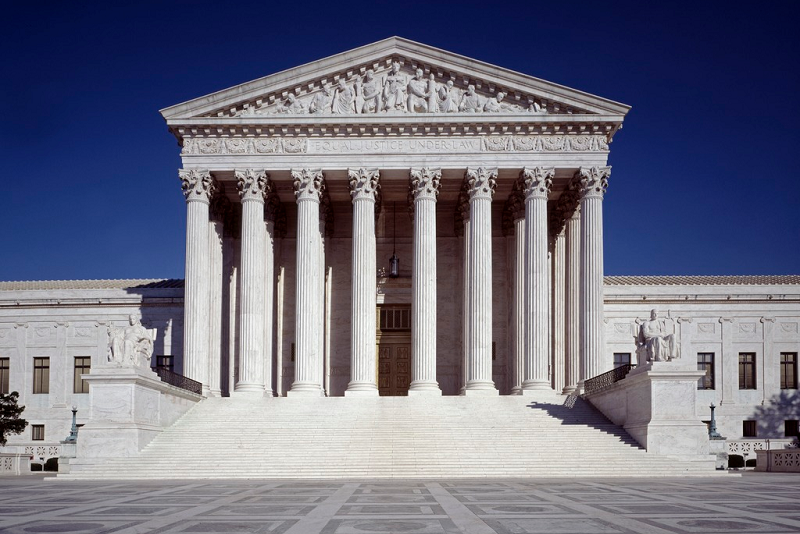BROWSE BY TOPIC
- Bad Brokers
- Compliance Concepts
- Investor Protection
- Investments - Unsuitable
- Investments - Strategies
- Investments - Private
- Features/Scandals
- Companies
- Technology/Internet
- Rules & Regulations
- Crimes
- Investments
- Bad Advisors
- Boiler Rooms
- Hirings/Transitions
- Terminations/Cost Cutting
- Regulators
- Wall Street News
- General News
- Donald Trump & Co.
- Lawsuits/Arbitrations
- Regulatory Sanctions
- Big Banks
- People
TRENDING TAGS
Stories of Interest
- Sarah ten Siethoff is New Associate Director of SEC Investment Management Rulemaking Office
- Catherine Keating Appointed CEO of BNY Mellon Wealth Management
- Credit Suisse to Pay $47Mn to Resolve DOJ Asia Probe
- SEC Chair Clayton Goes 'Hat in Hand' Before Congress on 2019 Budget Request
- SEC's Opening Remarks to the Elder Justice Coordinating Council
- Massachusetts Jury Convicts CA Attorney of Securities Fraud
- Deutsche Bank Says 3 Senior Investment Bankers to Leave Firm
- World’s Biggest Hedge Fund Reportedly ‘Bearish On Financial Assets’
- SEC Fines Constant Contact, Popular Email Marketer, for Overstating Subscriber Numbers
- SocGen Agrees to Pay $1.3 Billion to End Libya, Libor Probes
- Cryptocurrency Exchange Bitfinex Briefly Halts Trading After Cyber Attack
- SEC Names Valerie Szczepanik Senior Advisor for Digital Assets and Innovation
- SEC Modernizes Delivery of Fund Reports, Seeks Public Feedback on Improving Fund Disclosure
- NYSE Says SEC Plan to Limit Exchange Rebates Would Hurt Investors
- Deutsche Bank faces another challenge with Fed stress test
- Former JPMorgan Broker Files racial discrimination suit against company
- $3.3Mn Winning Bid for Lunch with Warren Buffett
- Julie Erhardt is SEC's New Acting Chief Risk Officer
- Chyhe Becker is SEC's New Acting Chief Economist, Acting Director of Economic and Risk Analysis Division
- Getting a Handle on Virtual Currencies - FINRA
ABOUT FINANCIALISH
We seek to provide information, insights and direction that may enable the Financial Community to effectively and efficiently operate in a regulatory risk-free environment by curating content from all over the web.
Stay Informed with the latest fanancialish news.
SUBSCRIBE FOR
NEWSLETTERS & ALERTS
SEC Disciplinary Authority on Trial Before the Supreme Court
The disciplinary authority of the SEC is on trial today in the Supreme Court. At issue is whether limits should be placed on how much ill-gotten gains the SEC may disgorge from a guilty party.
KOKESH V. SEC. In 2009, the SEC filed suit against Charles Kokesh, a New Mexico investment adviser, on charges he misappropriated funds from 4 companies. A jury convicted Kokesh in 2014, and the federal judge ordered him to pay $55.4 million – including $34.9 million in disgorgement.
Kokesh appealed the decision, arguing that disgorgement for activities that occurred between 1995 and 2006 should be subject to the same 5-year statute of limitations that applies to civil fines, penalties or forfeitures under Section 2462 of the U.S. code. If such a limitation was applied, disgorgement in this case would only amount to about $5 million – not $34.9 million.
The SEC countered that disgorgement, which targets the "ill-gotten gain" reaped through a securities-law infraction, does not fall under the 5-year statute of limitations because it is "remedial" rather than "punitive."
IMPORTANCE OF THE CASE. The Supreme Court’s decision is important because disgorgement is a critical weapon of the SEC - particularly when the potential for disgorgement is large and goes back many years. In 2016, alone, the agency obtained more than $4 billion in disgorgement and other penalties.
A Supreme Court ruling in favor of Kokesh would weaken SEC negotiations in its current pipeline of investigations, and it would increase the likelihood past defendants who were disgorged of ill-gotten profits might seek to have their cases re-opened.
WHY THE SUPREME COURT IS HEARING THIS CASE. The Supreme Court agreed to hear this case because there is a split at the circuit level, with the 10th, 1st and D.C. circuits siding with the SEC, and the 11th Circuit holding that a 5-year statute of limitations should be applied to disgorgement. In 2013, the Supreme Court ruled that a 5-year statute of limitations should be applied to SEC civil penalties.
A ruling on this case is expected by the end of the Supreme Court term in July.





